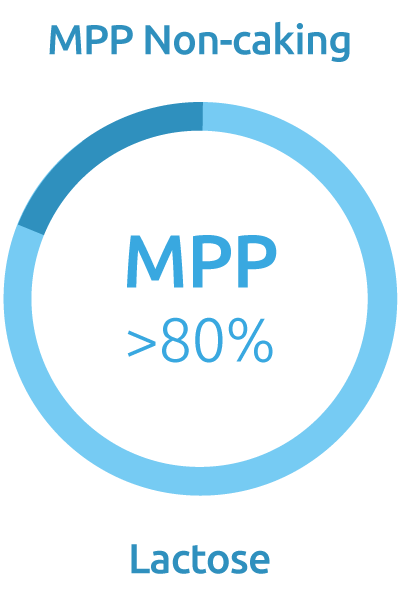Up to 75% of the population may be lactose intolerant. This may occur to a greater or lesser degree and may be caused by an associated problem and may be a temporary episode or become chronic from diagnosis. It is important to differentiate between lactose intolerance and milk protein allergy. A person with lactose intolerance reacts to the sugar present in milk (lactose), but may have a lesser rejection of already fermented milk such as cheese or yoghurt, and the symptoms are basically in the digestive system. Meanwhile, an allergic person reacts to the milk protein, and therefore will not tolerate any dairy product, which may cause adverse symptoms beyond the digestive system itself.
Does this mean that, in either case, I should give up all dairy products? In the case of intolerance, most likely not, because although our body reacts to the inability of the small intestine to digest this sugar, this is not a direct cause for us to avoid all dairy products, since in many of them the lactose is in sufficiently low quantities for our body to be able to process it. So in many cases, it is more than likely that a person who is not able to digest the lactose in a glass of whole milk can tolerate yoghurt perfectly well. This is largely determined by the fact that while a glass of milk contains about twelve grams of lactose, a yoghurt contains only four grams.
In addition, fermented milks are better tolerated due to their lower lactose content and can therefore be recommended for milder degrees of intolerance. However, it is in the variety of cheeses and dairy products and in most yoghurts that there is a wide range of possibilities for people with mild or moderate intolerances to consume dairy products.
Unlike milk, these two products undergo a fermentation process involving various bacterial strains that break down lactose. This does not mean that everyone with lactose intolerance can enjoy them, but as long as their lactose intolerance is not severe, small amounts may not be problematic and sometimes even beneficial, as in the case of yoghurt. Its lower percentage of lactose, between 20 and 30% less than other products, and its richness in acid bacteria that help the digestion of lactose, make it an ideal product in many cases to consume dairy products without suffering any type of digestive problems.
Both yoghurt and cheese can help to achieve the dairy intake recommended by the Spanish Federation of Nutrition, Food and Dietetics Societies (FESNAD), due to their high protein content and because they are a source of calcium. And also for the presence of vitamins, especially B and D, as well as minerals such as phosphorus, magnesium, potassium and zinc. Therefore, providing we can avoid their total elimination from our diet, it is a positive thing.















